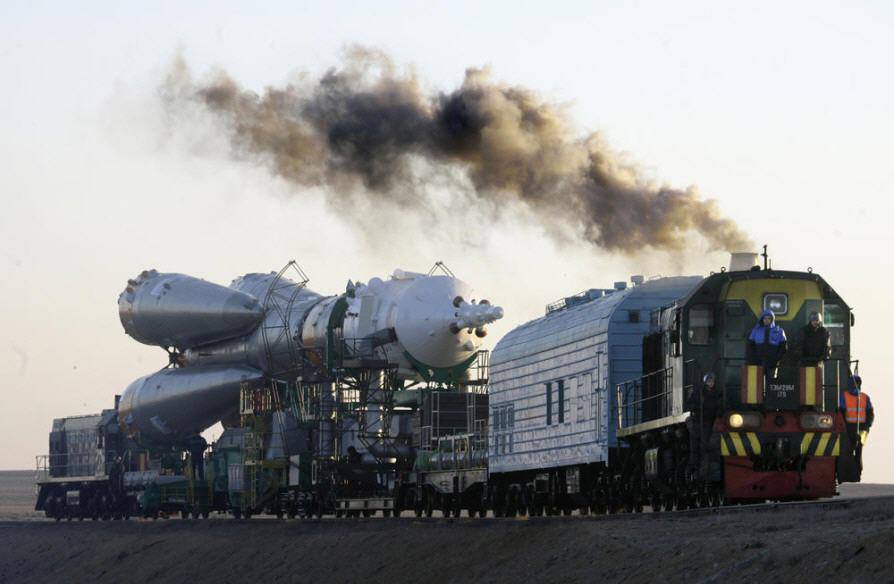Began a large-scale check "Roscosmos"
There are too many problems in the Russian space program.

The launch failure at the Vostochny cosmodrome due to the wrong cable did not pass without a trace to guide the space industry. Individual officials were reprimanded and severely reprimanded . The head of the NGO Automation NGO, Leonid Shalimov , resigned after receiving a resolution on incomplete official compliance, despite the fact that NGO employees collected signatures in support of it.
Now came the turn of "Roskosmos". The presidential control department began a large-scale audit of the state corporation, which was confirmed by the official representative of Roskosmos, Igor Burenkov. The check is even going on at enterprises that had nothing to do with the launch at Vostochniy. Employees are seated late in the evening and on weekends to provide the inspectors with the documentation that they request.
“The inspectors raised the results of previous inspections of the industry, including the materials of the Accounts Chamber, and now they check the new one more thoroughly,” a source in the leadership of the Energia Rocket and Space Corporation (RSC Energia) told Izvestia. - Last week, our people sit all weekends, looking for and requesting information from counterparties. They requested data on the number of employees, qualifications, state of production facilities - on the whole range of information in general.
')
The launch of the missile failed and the launch was postponed for a day due to the fault of other organizations: the main responsibility of the state commission to investigate the reasons for the first launch failure was assigned to the Academician Semikhatov automation company (NPOA), where the cable was not manufactured according to the design documentation, which turned out to be without several necessary jumpers.
As mentioned earlier, the main complaints against Roscosmos are not caused specifically by this postponement of the start (this is quite a regular situation), but by the accumulated heap of problems, including the delayed construction of the East.
“Too many negative facts have accumulated in the rocket and space industry lately,” a source familiar with the situation told Izvestia:
For example, during the past year, almost all satellites built by Russian companies for foreign customers went down in orbit: EgyptSat 2, made by RSC Energia, failed in spring, AMOS 5 made by ISS Reshetnev for an Israeli company in November. The radar satellite "Condor-E", manufactured for South Africa, also failed in orbit.
Three more accidents in 2015 occurred during the process of putting the spacecraft into orbit: the launch of the Progress spacecraft with cargo for the ISS ended unsuccessfully in April, the Proton unsuccessfully launched in May with the Mexican telecommunications device, and in early December the space forces lost the satellite Canopus ST.
On the whole, 2015 was a record year for space accidents - Russia for this indicator broke far ahead of other space powers. By the end of last year, a number of Western insurance companies refused to insure the risks associated with the use of Russian space technology.
Against the backdrop of technological failures, the bill of criminal cases on the facts of misappropriation, fraud, negligence and other articles typical for the industry is growing. The former leaders of the Khrunichev Center, RSC Energia, and the former leaders of Dalspetsstroy, who led the construction of Vostochny, are under arrest.
Source: https://habr.com/ru/post/372279/
All Articles